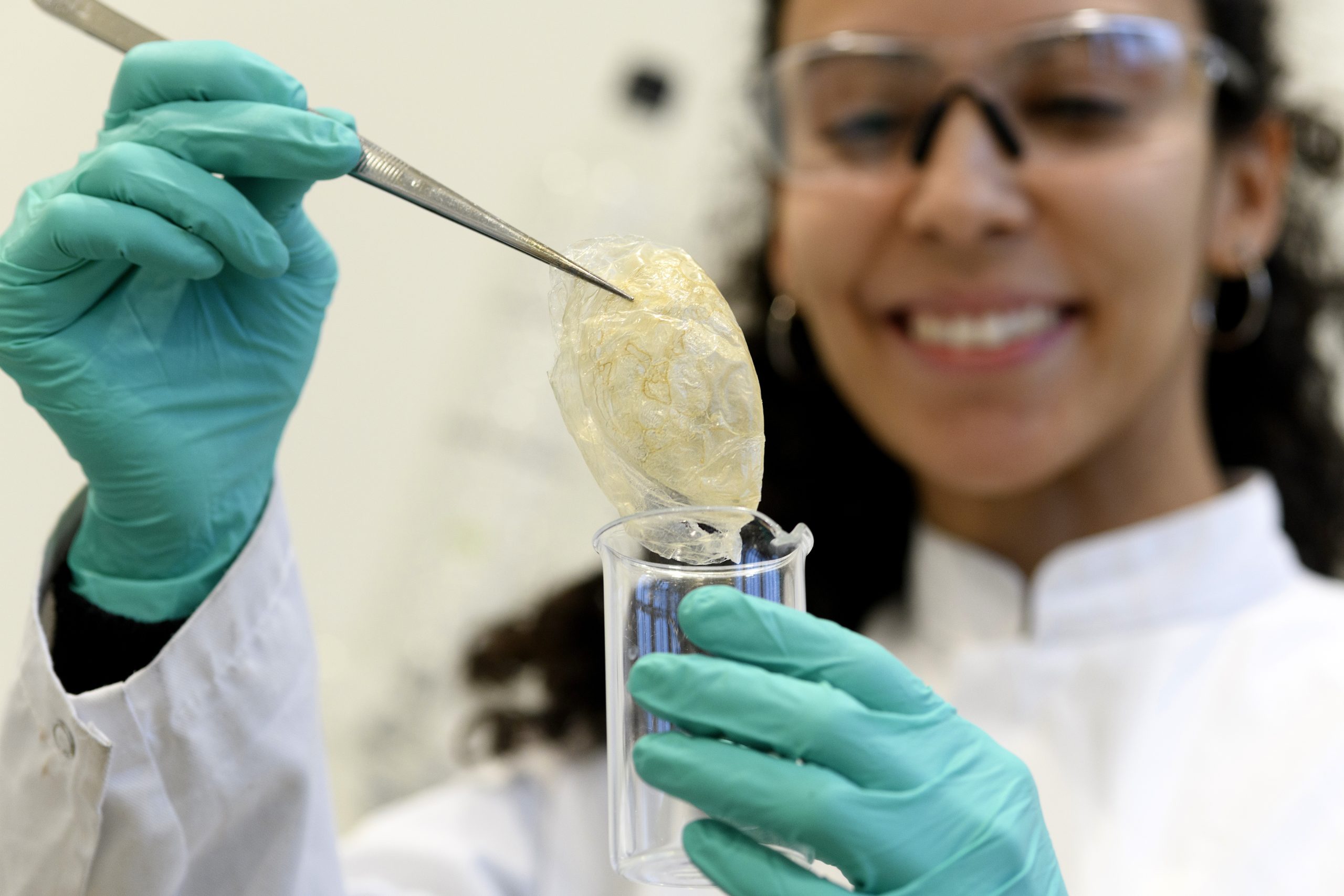MNEXT plays a crucial role in advancing biochemical research, with a strong focus on sustainability and innovation. Their projects focus on developing biobased and circular materials, contributing to a greener future.
For example, our researchers are working on the Green EGCh project, which focuses on the transition to green chemistry. This project involves the development of a campus with advanced equipment for research and education in green chemistry. The aim is to create a learning community where knowledge exchange takes place between different stakeholders.
MNEXT supports more than 100 research projects in which researchers and students collaborate with companies and governments to advance innovations in a biobased environment. Through practice-oriented research and collaboration with various partners, we contribute to the acceleration of the energy transition and the development of sustainable technologies.




